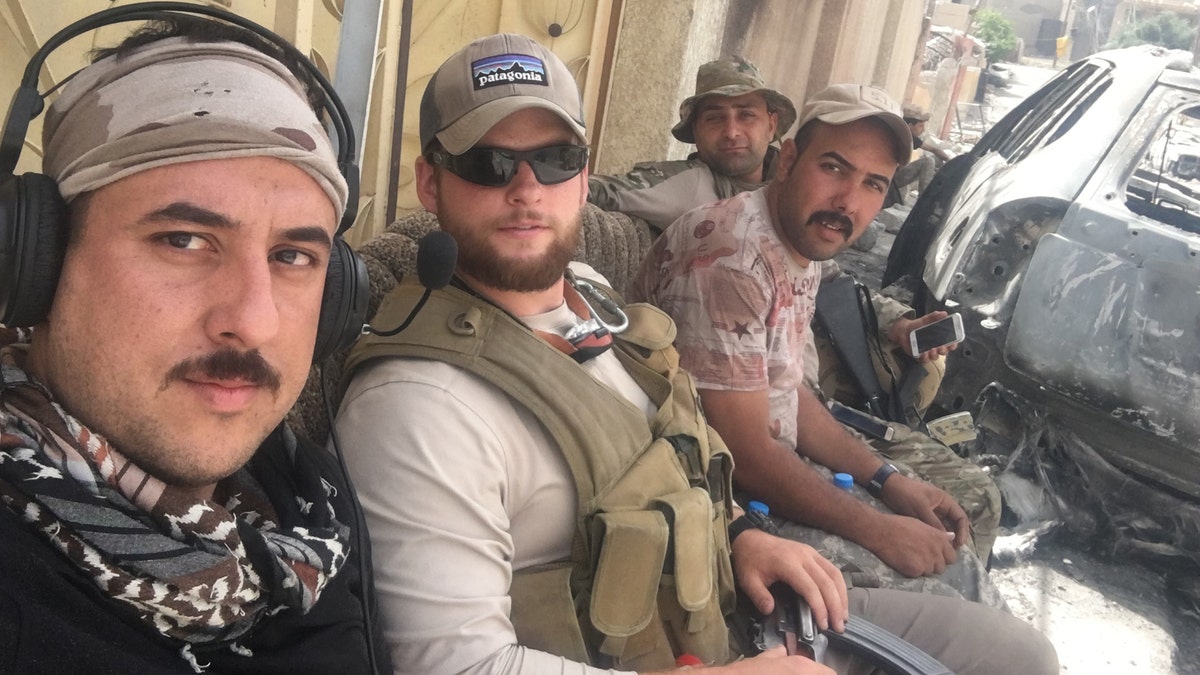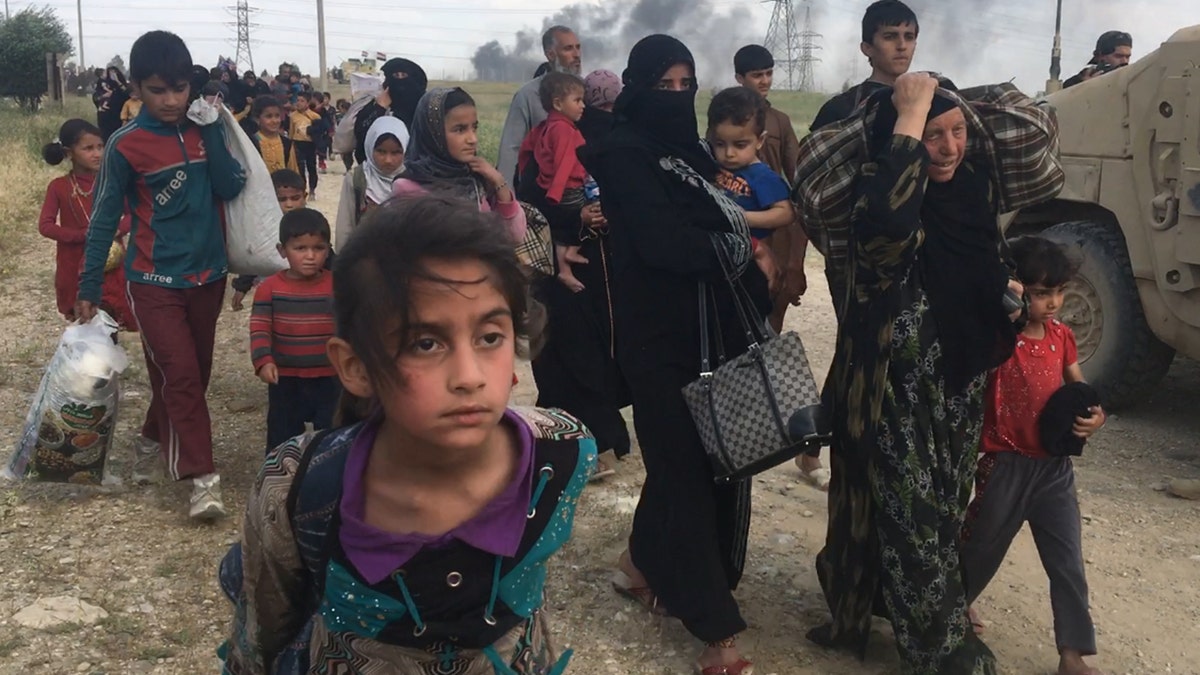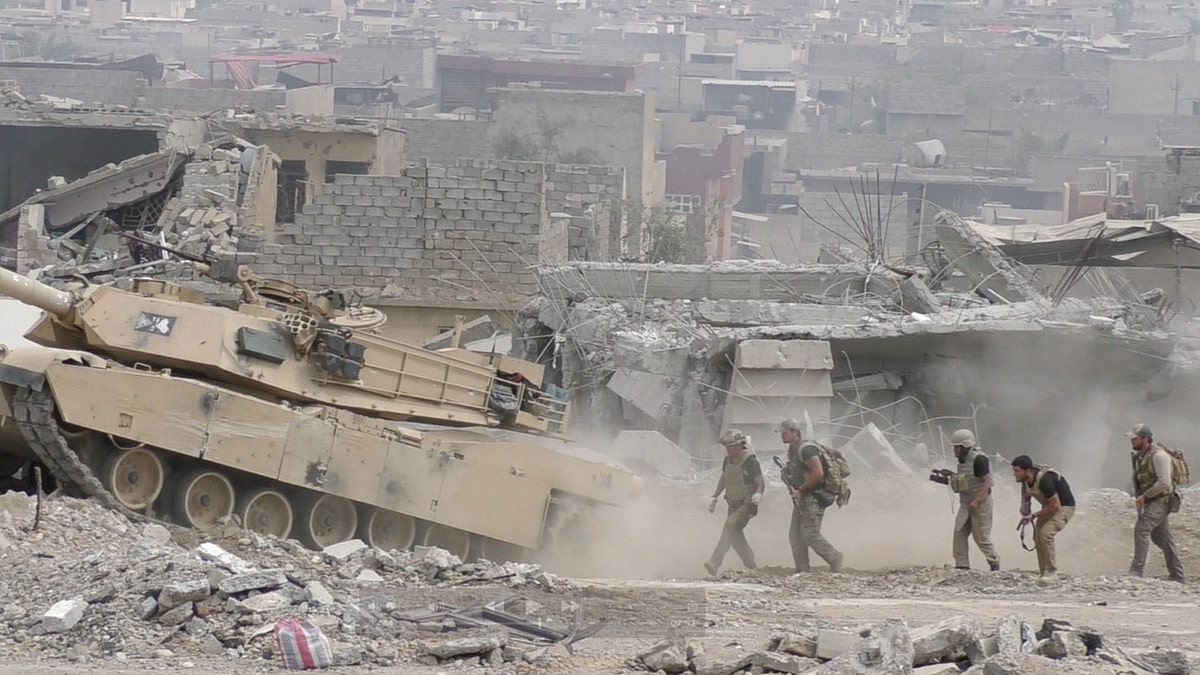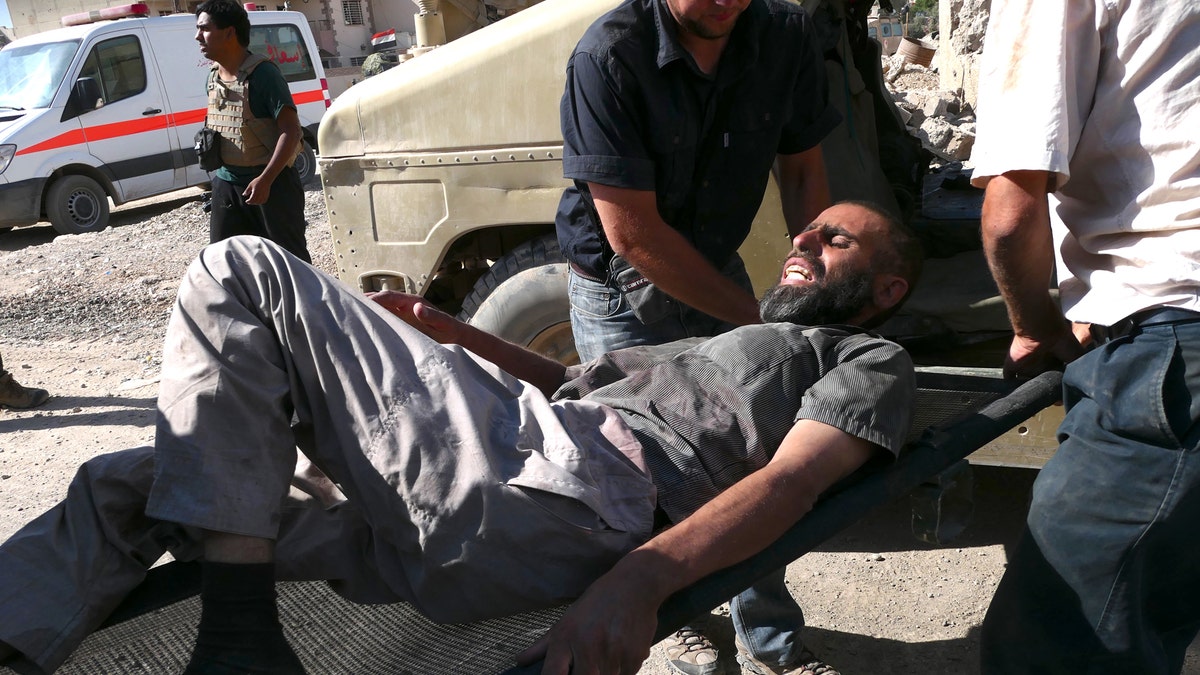Iraqi forces, supported from the air by the U.S.-led coalition, on Monday closed in on the last part of Mosul still under ISIS control. Despite an imminent military victory by Iraqi forces, scores of civilians were slaughtered in a final stand by the terrorist group. Some made it more than three years through the brutal occupation of the nation’s second-largest city only to die in its final days; others, including small children, have known nothing but the reign of savagery in the span of short lives.
“ISIS was just gunning down civilians in the middle of the night as they ran – women and children. We were trying to treat as many people as we could,” Ephraim Mattos, a former Navy SEAL, recalled to Fox News of the deadliest day in the “Battle for Mosul,” which started at the beginning of June. “But bodies were all over the streets. An entire family lay dead right there – an old man, young parents and their baby between them.”
Only the newborn didn’t die from the same gunshot wounds that had befallen the child's parents, its little head had been cracked open in the fall of that fatal flee for safety. For Mattos, such a sight was only the start of what he was to witness in the coming hours.
A LOOK AT KEY MOMENTS ON THE ROAD TO MOSUL

Ephraim Mattos waiting for a ride to the front lines with a few Iraqi soldiers. (May 2017) (Photo by The Fireside Journal)
The United Nations confirmed that hundreds of residents have been shot and killed by ISIS this month alone, with the most calamitous day being on that June 1 and June 2 as more than 160 were massacred while running from their West Mosul homes.
“We saw two young girls, about 11 or 12, lying down. One had been shot dead in the back, the other in the head – her face was totally gone,” Mattos said. “Where her face used to be, was just a big black hole.”
Just a few days after officially retiring from the military in early April, Mattos, 25, boarded an Iraq-bound flight as a medic and aid volunteer with global humanitarian group Free Burma Rangers (FBR). The group aims to bring life-saving relief to innocent civilians caught up in violent conflicts around the world. On May 4, he was with Iraq’s 9th Armored Division when it was ordered to assault Mosul and, in his words, “the insane bloodshed” began.
In the ensuing weeks, Mattos treated the injured, delivered aid to the needy and documented human rights abuses with other volunteers – including David Eubank, a former U.S. Army Special Forces fighter and founder of FBR, Sky Barkley, a former U.S. Marine turned full-time missionary, Mahmoud Darweesh, an FBR interpreter and Syrian refugee wanting to immigrate to the U.S., and the FBR cameraman known by his nickname “Monkey”.

Civilians breaking free from ISIS as Iraqi forces invade Mosul. (May 4, 2017) (Photo by The Fireside Journal)
But what specifically happened on that date was like nothing the experienced combat veteran had ever been exposed to in his seven years as a SEAL. As Mattos and his team surged through another sea of up to 70 bodies in the early hours of Sunday, signs of life emerged.
“We started to see children alive, buried underneath the dead. They were in shock. These little kids would get up and poke the bodies of their parents – confused, trying to wake them up from their sleep,” Mattos remembered. “One little boy, no older than 6 or 7, laid down next to what appeared to be his sister. He covered her in a scarf to shield her from the hot sun. It was absolutely heart-breaking. We all knew then, we had to do something to get those kids out.”
GRIEVING IRAQIS CALL ON US TO INVESTIGATE MASSACRE OF 1,600 MILITARY CADETS
That something was a quick call from Iraqi Army associates to a U.S. aircraft to drop something of a smoke screen to provide cover, as they were less than 200 yards from an ISIS hospital being used by the jihadists as a headquarters. Sniper rounds bounced off the tank operated by Iraqi soldiers while Mattos and his U.S. counterparts ran behind the tank. He said they knew then there was no way they were “getting out without a scratch.”
“I was terrified. I had to will myself to go forward,” he admitted. “But I had decided that I was prepared to die to get that little girl out of there… What ISIS was doing was just unreal. How do you shoot a little girl in the back of the head?”
As the fighters and volunteers maneuvered to avoid hitting the dead, they were faced with corpses of pregnant women slaughtered by ISIS, an old man with his brain hanging from his skull, a little girl – miraculously alive – hiding beneath her mother’s blood-soaked hijab, not even blinking at the ferocious sound of a canon being fired.

While under fire, “Monkey,” Mahmoud Darweesh, David Eubank, Sky Barkley, and Ephraim Mattos follow a single Iraqi tank toward ISIS lines to rescue stranded civilians. (June 2, 2017) (Photo by Bernard Genier)
Bullets sprayed over Mattos’ head from all directions, with an estimated 100 fighters believed to be in that vicinity at the time – and at least a dozen snipers, obscure on rooftops and from the dark hollow rooms of mortar-gashed houses. As he ran back to his position behind the vehicle, one of those bullets struck his right calf – entering one side and exiting the other.
“As a SEAL, we are taught that our job is to take care of ourselves until the battle is over,” Mattos said.
Sometime later, the former sailor made it to a nearby mosque being used by Iraqi forces as a makeshift clinic. A few minutes after he arrived, that little girl – the one who cloaked herself in her dead mother’s hijab – was brought in and placed two beds over, deeply traumatized but alive. For more than a week after that, the bodies of the murdered lay decomposing, their dignity stripped, in the blistering summer streets as authorities were not able to immediately clear the ISIS-riddled zone.
Mattos was subsequently taken to the Kurdish capital of Erbil for medical care and spent another two weeks in the hospital. Last week, he arrived home to Wisconsin to heal. The gunshot wound, he notes, is “no big deal.” Mattos, along with his brother Zebulun, a devoted humanitarian, recently launched their own media group The Fireside Journal (TFJ) as a hub to share content about various lessons learned in life, the beauty of creation and to inspire others by example.

The man that the team was able to save. (June 2, 2017) (Photo by Bernard Genier)
But for now, his mind remains more than 6,000 miles away.
Although Iraqi forces have only a small part of Mosul to liberate, the so-called Old City, what is left are burned-out homes and a booby-trapped wasteland. Who will live long enough to return to ever see the city they once called home free from the black flag, remains a waiting game.
